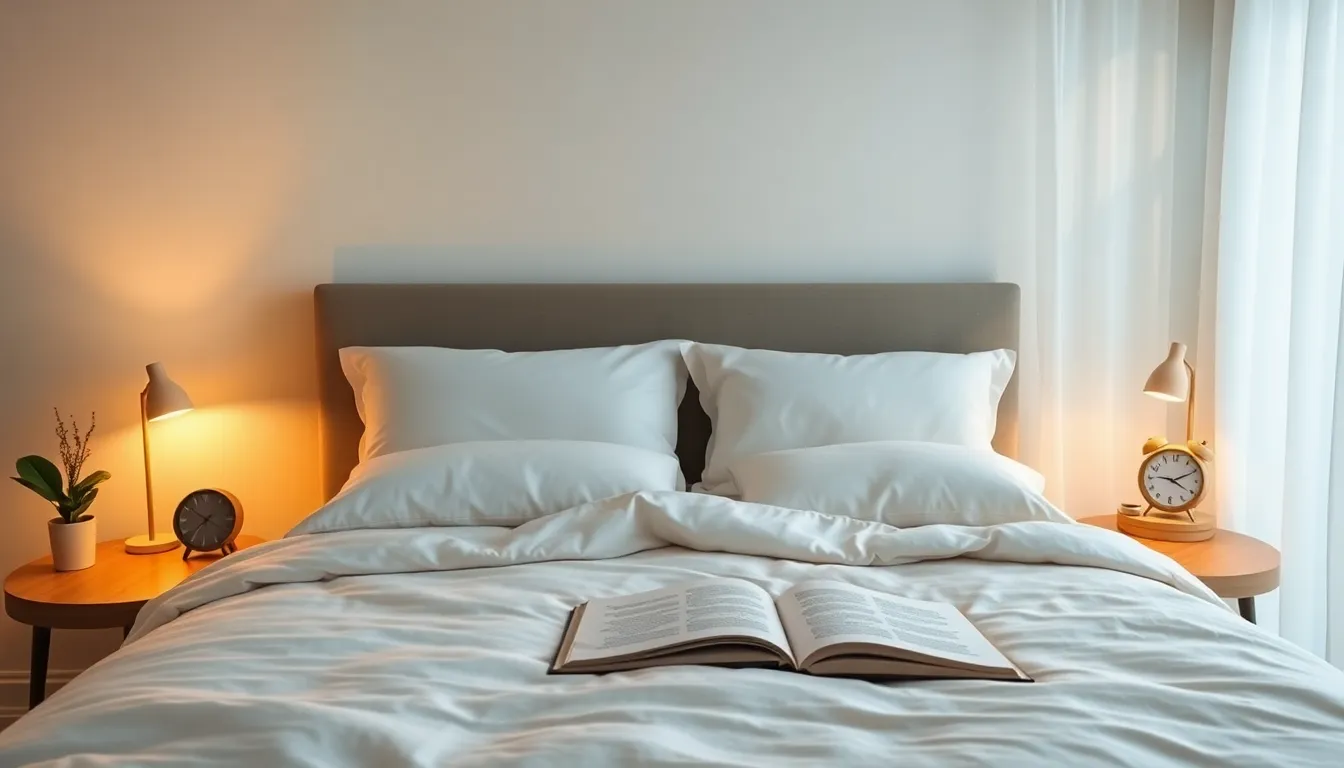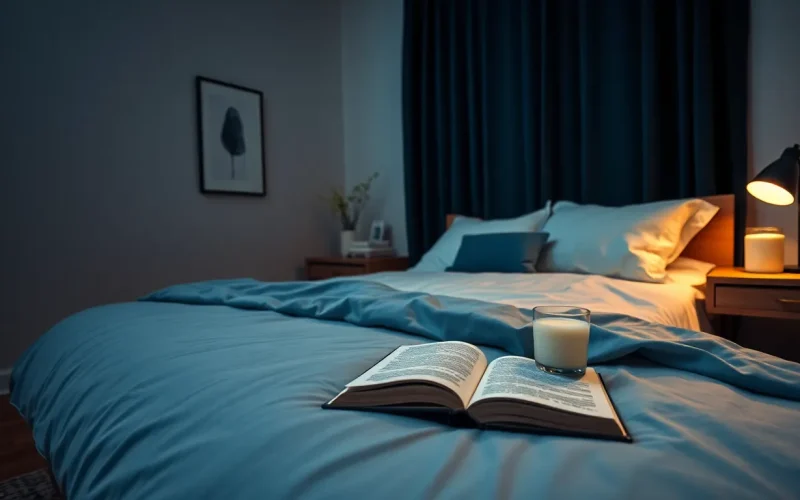Table of Contents
ToggleIn a world that often values hustle over health, many people find themselves tossing and turning at night, staring at their ceilings and counting imaginary sheep. Yet, what if we told you that having a restful night is not just a luxury but a necessity? Sleep is the unsung hero of wellness, and achieving those magical eight hours can transform mood, productivity, and even those dark circles under your eyes. So, grab your favorite pajamas, maybe a warm glass of milk, and let’s jump into the secrets of sleeping like a baby.
Understanding the Importance of Sleep

The Science Behind Sleep Cycles
Sleep is more complex than simply closing your eyes and drifting off. It encompasses an intricate series of cycles through various stages like REM (Rapid Eye Movement) and non-REM sleep. During these cycles, the body goes through processes that balance hormones, repair tissues, and even consolidate memories. Understanding these stages helps in recognizing how quality sleep can lead to improved mental and physical health.
Consequences of Poor Sleep Quality
Lack of sleep doesn’t just make people grumpy: it can lead to serious health risks. Chronic sleep deprivation is linked to obesity, heart disease, and even diabetes. Studies also show that insufficient sleep can impair cognitive functions, stunt emotional growth, and reduce overall life satisfaction. Simply put, sleep well or prepare to pay the consequences.
Creating a Sleep-Conducive Environment
Tips for Optimizing Your Sleep Space
The bedroom should be a sanctuary, not a battleground of distractions. Start by keeping your bedroom dark, cool, and quiet. Utilizing blackout curtains and investing in quality soundproofing can create an oasis of calm that lulls you to sleep. Adjusting your thermostat to a cooler temperature might just be the cooling sip your sleep environment needs.
Dimming Lights and Reducing Noise
Lighting plays a pivotal role in sleep quality. Blue light emitted by screens can suppress melatonin production, your body’s natural sleep hormone. Dimming the lights as bedtime approaches can promote a more restful environment. Besides, minimizing noise through soft background sounds, like white noise or nature sounds, can enhance relaxation and drown out disturbances.
Choosing Comfortable Bedding and Mattresses
A great mattress is non-negotiable for many people, akin to finding the perfect pair of jeans. Invest in supportive, comfortable bedding that suits one’s preferences, some prefer plush while others lean towards firm. Also, opting for breathable materials allows for better temperature regulation throughout the night.
Establishing a Relaxing Bedtime Routine
Effective Relaxation Techniques Before Sleep
Routine matters. Engaging in activities that signal the body it’s time to wind down can significantly impact sleep quality. Activities like reading a book, practicing gentle yoga, or even taking a warm shower can ease the transition into sleep. These simple habits create a restful bridge from the chaos of the day to the calm of night.
Meditation and Mindfulness Practices
Meditation or deep-breathing exercises can calm the racing thoughts that often plague the mind at night. Taking just a few minutes to practice mindfulness can center one’s thoughts and promote relaxation. Apps designed for meditation offer guided exercises tailored for pre-bedtime tranquility.
Limiting Screen Time Before Bed
Let’s face it, scrolling through social media can seem harmless, but those screens are deceptive. Limiting screen time at least one hour before bed can enhance sleep quality by allowing the eyes and mind to relax. Consider replacing the phone with a book or a light-hearted podcast to prepare the body for sleep.
Nutrition and Its Impact on Sleep Quality
Foods That Promote Better Sleep
What one consumes can significantly affect their sleep patterns. Foods rich in magnesium, like almonds and spinach, can help relax the body. Tryptophan-rich foods, such as turkey and bananas, promote serotonin production, which is essential for melatonin synthesis. Eating a balanced diet not only fuels the body during the day but also prepares it for restful nights.
Caffeine and Alcohol: Best Practices
Caffeine is the infamous culprit for many sleepless nights: it’s best to avoid it at least six hours before bedtime. On the other hand, while alcohol might initially seem to induce sleep, it disrupts the sleep cycle later in the night. Moderation is key, and being aware of timing can lead to better sleep results.
The Role of Hydration in Sleep
Hydration is undoubtedly important, yet balancing water intake is crucial. Drinking too much before bed can lead to midnight bathroom trips, disrupting sleep. Instead, keep hydration steady throughout the day and reduce intake in the hours leading up to bedtime.
Addressing Common Sleep Disorders
Insomnia: Causes and Solutions
Insomnia often creeps in uninvited, affecting millions. Identifying potential causes is essential: they might range from stress to medical conditions. Solutions can include cognitive behavioral therapy or medication in some cases. Developing better sleep habits, as discussed earlier, can also significantly alleviate symptoms.
Sleep Apnea: Understanding the Risks
Sleep apnea is a severe disorder where breathing repeatedly stops and starts, leading to fragmented sleep. Understanding its symptoms, like loud snoring and excessive daytime fatigue, is crucial for those at risk. Treatment options include lifestyle changes, continuous positive airway pressure (CPAP) therapy, or even surgery in severe cases.
When to Seek Professional Help
If sleep struggles persist beyond a few weeks, it’s wise to consult a healthcare professional. They can offer a tailored approach to individual situations, possibly recommending sleep studies that can provide valuable insights into one’s sleep patterns.





